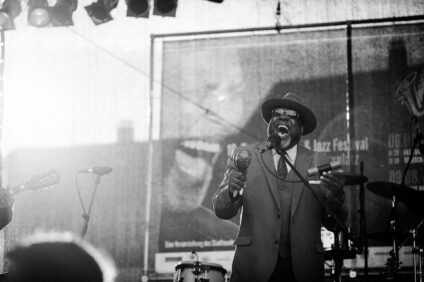Who is a performer?
A performer is defined as a singer, musician, or a person who sings, delivers, renders, plays in, or otherwise performs literary and artistic works.
Students of the Hugh Wooding Law School Human Rights Law Clinic were each given the opportunity to write an article for the “Law Made Simple” column in the Trinidad Guardian newspaper. These topics ranged from analysis of specific legislation, to general legal concepts. The aim of this exercise was to teach the students how to write about complex legal issues, for the average newspaper reader.
The articles were edited by the Clinic’s coordinator Mr. Jason Nathu, and will appear in the Trinidad Guardian over the next few months.
This article was written by student Junior Nagassar on the rights of performing artistes.
Acts requiring authorisation by performer
It is an infringement of a performer’s right to do any of the following acts in relation to his/her performance without the consent or authorisation of the performer:
- broadcast or communicate to the public his performance;
- record a live performance;
- reproduce it;
- distribute it to the public;
- sell or transfer it;
- rent it to the public; or
- make it available to the public through an electronic retrieval system, eg. internet.
Right to enter into contract
Under section 21 (3) of the Copyright Act Chap. 82:80, performers are however free to contract on terms and conditions which are more favourable to them in relation to their performances.
Equitable remuneration
Once a sound recording of a performance is published for commercial purposes, or is reproduced directly or indirectly for broadcasting or communication to the public, or is publicly performed, a single equitable sum shall be paid to the performer by the producer. Unless otherwise agreed, half of the amount received by the producer shall be paid to the performer.
Limitations on protection
No permission or authorisation is required if it can be shown that the work of the performer is being used by a person for his own personal purpose, reporting current events to the extent justified for providing current information eg. for news reports and stories, or for education or scientific research.
Ownership of performance
As a general rule, the owner of the copyright is the person who created it. As such, the original owner of a performance is the performer in the performance. One important exception to this is when an employee creates a work in the course of his employment, in which case the copyright owner will be the employer.
In respect of a work of joint authorship, the co-authors shall be the original owners of copyright. But if such a work consists of parts that can be used separately and the author of each part can be identified, the author of each part shall be the original owner of the copyright in the part that he has created.
The same goes for the performance of two performers. They shall be the original owners of their performance, but if the performance consists of parts that can be used separately and the performer of each part can be identified, the performer of each part shall be the original owner of the part he/she created.
Remedies
When the rights of a performer are infringed, the performer can bring an action in the High Court for the infringement. Relief by way of damages, injunction, accounts or otherwise shall be available to the claimant as is available in proceedings for infringements of other proprietary or ownership rights.




